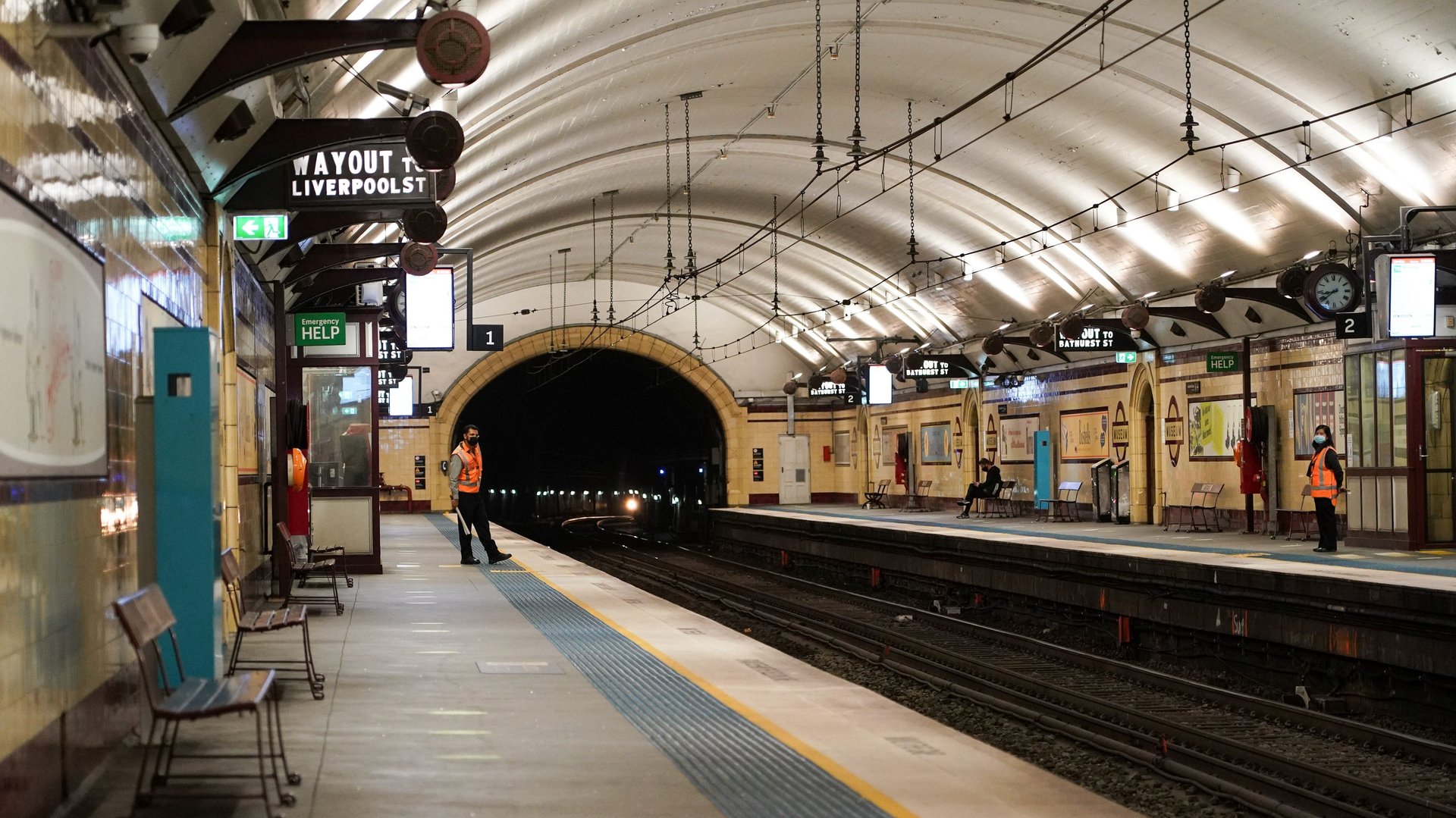Is hybrid work killing the monthly transit pass?
Nearly two years after the start of the pandemic, a picture of the new workweek is taking shape: Workers haven’t abandoned the office entirely, but they are coming in less often. Public transportation agencies are trying out more flexible ticket options in response.


Nearly two years after the start of the pandemic, a picture of the new workweek is taking shape: Workers haven’t abandoned the office entirely, but they are coming in less often. Public transportation agencies are trying out more flexible ticket options in response.
The Committee for Sydney, an urban think tank in Australia, surveyed 130 employers and found that just over half of bosses expect their workers to come in just three days a week as Elias Visontay originally reported for The Guardian, this hybrid trend is already taking shape. Data collected by an Australian research firm shows that since May of 2021, workers in Sydney have tended to work from home on Mondays and Fridays, and “cluster” their in-office days towards the middle of the week.
This is corroborated by data from Google’s community mobility report, which shows that on average, workers in Sydney traveled to their jobs about 52% less than before the pandemic on Tuesday through Friday, but 56% less on Mondays.
As the Covid-19 pandemic fundamentally reshapes commuting for millions of workers, public transportation agencies are adapting to massive drops in ridership by rethinking pricing structures. That led the Committee for Sydney to propose (pdf) transit pricing match ridership patterns: fares would rise in the middle of the week when commuters enter downtown, and drop on Mondays, Fridays, and weekends during off-peak hours.
Pay as you go (to work)
Time-based transit passes, such as weekly or monthly passes, are one of the first things on the chopping blocks. Transit agencies in London, New York, and Chicago, have begun to reconsider monthly transit passes after seeing sales plummet during 2020, although none have completely eliminated them.
Other transit agencies are catering to the new normal work schedule by offering more flexible pricing models. At least one city in Switzerland (link in German) is piloting a transit subscription that can be activated for select days of the week. Transit agencies in Montreal are planning to offer a similar two-to-three-day ticket program. Still other Swiss cities are testing out “credit caps:” The idea is that a person pays for a set amount of travel for the month up front, say $100. If they take $10 worth of trips over that amount they pay for it, but that $10 is rolled over as a credit towards the next month’s travel.
Antoine Belaieff, an expert in transportation policy at transit ticketing app Fairtiq, sees all of these alternative models as a way to get people back onto public transportation by offering them a fair deal. “The way these programs are built, riders aren’t asked to gamble with their money in advance,” says Belaieff. “At the end of the month, you pay for what you used, and you’re rewarded for using more.”
The transit problem of clustered commutes
Any commuters returning to public transit will be better than none for transit agencies’ budget, but a clustered commute schedule still hits their bottom line. If the workweek isn’t well-distributed, train cars and buses are packed three days a week, and relatively empty the rest of the time. “Clustering builds peaks of demand where they didn’t exist before,” Belaieff says. “If cities start seeing that too many companies are clustering on Tuesdays through Thursdays, the responsible thing to do might be for a mayor to encourage the largest employers to stop.”
Unbalanced transit demand is also detrimental to restaurants and small businesses that rely on the downtown office set for a customer base. In its new transit proposal, the Committee for Sydney suggested lowering fairs on off-peak days incentivizes riders to use public transit and smooth demand across the week.
But Belaieff cautions that any pricing structure that gives preferential treatment to certain days of the week can harm consistent public transit users who have no alternative. “The challenge is to give the reassurance to customers that transit prices are fair, transparent, and predictable,” he says.